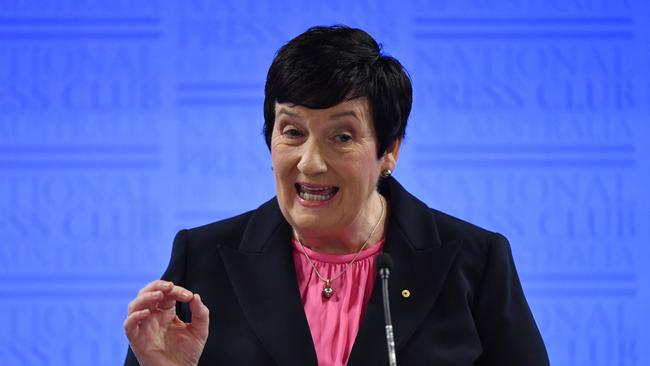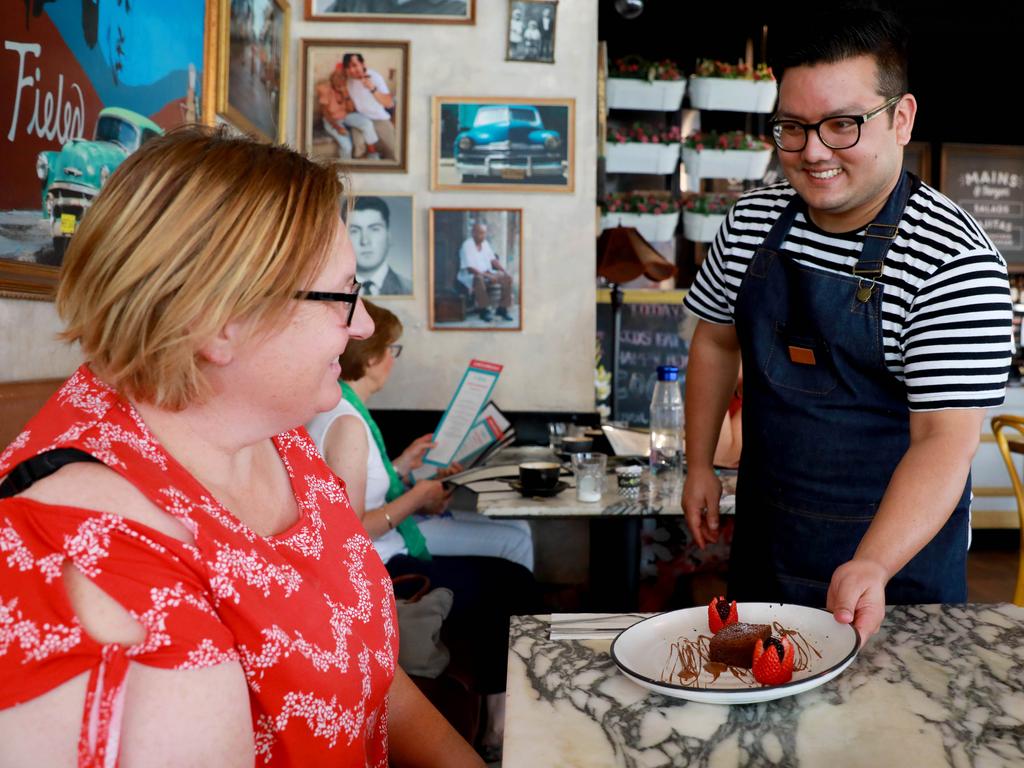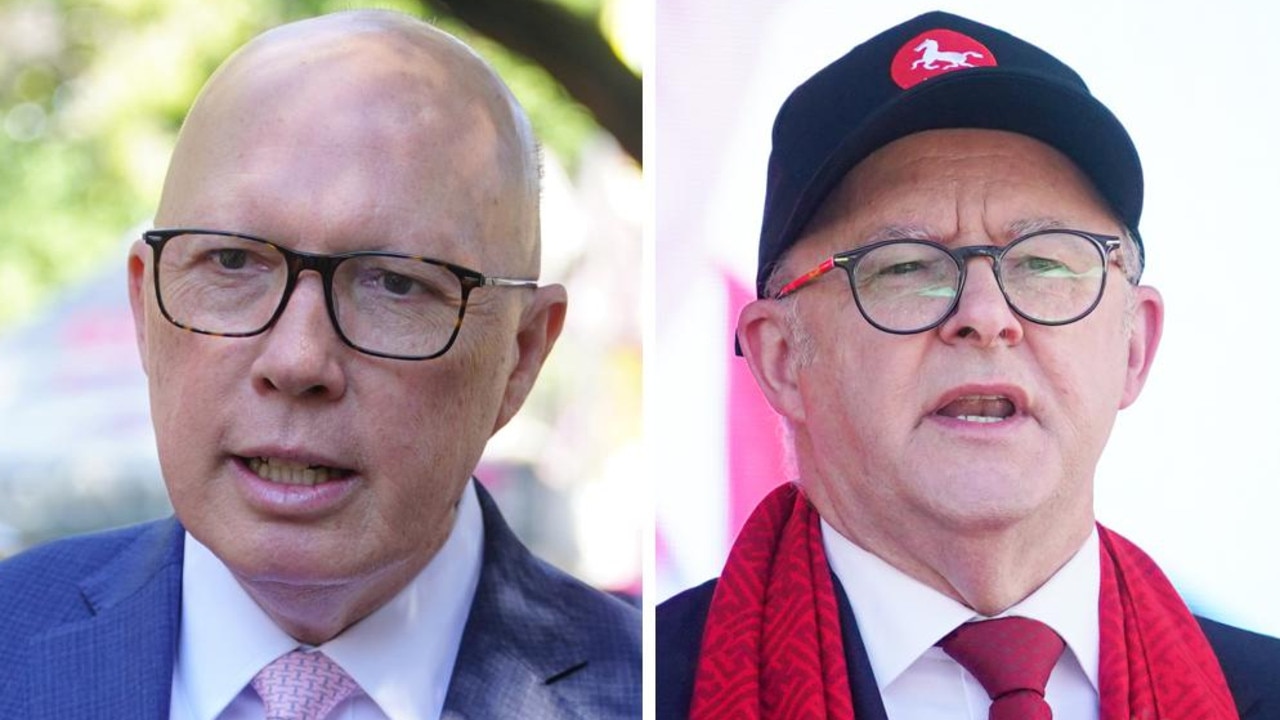Coronavirus: Staff risk missing out on JobKeeper wage
Australia’s top companies say they can’t afford to wait to access the government’s wage subsidy before changing workers’ hours, roles and leave arrangements.

Australia’s top companies say they can’t afford to wait to access the government’s wage subsidy scheme before changing workers’ hours and leave arrangements, declaring all options to fast-track changes to enterprise agreements must be considered if they are to keep employees and rebound quickly from the coronavirus crisis.
The plea for help comes as thousands of Australians risk missing out on the government’s $130bn JobKeeper relief package, as blue-chip companies that fail to qualify for the scheme start axing workers in response to the COVID-19 outbreak.
Companies with an annual turnover of more than $1bn must show their revenue has fallen by 50 per cent due to the coronavirus pandemic before they become eligible for the $1500 fortnightly payments.
Business Council of Australia chief executive Jennifer Westacott, whose organisation has about 80 members with an annual turnover of more than $1bn, said the threshold for large corporations was “very high”.
“Australia’s largest employers urgently need the ability to temporarily alter working hours and leave arrangements in consultation with unions so they can avoid falling into serious distress,” Ms Westacott said.
“We need to consider all options to fast-track varying enterprise agreements.
“This will be critical to ensure businesses have the flexibility they need as borders close, regular duties change and normal business hours decrease. We cannot afford for large employers to fall into serious levels of distress.
“If we wait until large employers have lost more than 50 per cent of their turnover before they can vary awards and enterprise agreements, many people will have been stood down in the process.”
Industrial Relations Minister Christian Porter said there was nothing stopping large employers seeking variations to industrial awards and enterprise agreements through the Fair Work Commission, which had already varied three major awards covering two million hospitality, restaurant and clerical workers.
“I would encourage the BCA to work with its big-business members to work co-operatively with employee representatives, just as the government and the ACTU have, to effect change which benefits their businesses and their employees for any impacts on both parties before eligibility for JobKeeper applies,” Mr Porter said.
“I would be happy to directly assist in any such process.”
Scott Morrison said on Tuesday that big businesses were better equipped to deal with the economic fallout from the pandemic.
However, the country’s heavy vehicle and freight industry urged the government to ensure vulnerable regional workers could access the JobKeeper scheme, regardless of the size or turnover reduction of parent companies.
“There is concern in parts of the freight and logistics industry around the equity of some of the initial requirements for the JobKeeper payment,” Australian Logistics Council chief executive Kirk Coningham said.
“The economic challenges of COVID-19 are being felt across every part of every industry.
“No matter how large or small a company, the reality is that everyone is having to make difficult decisions, and the policy responses should reflect that reality.”
The threshold a business must meet to access the scheme will be assessed at the parent company level but can be applied to individual entities within the corporation.
For example, Wesfarmers, which earns more than $1bn annually, would not be eligible if its total turnover had not dropped by 50 per cent, but its individual entities, such as Kmart and Target, would qualify if they could show they had lost half their revenue.
Companies that have an annual turnover of less than $1bn must show their revenue has decreased by at least 30 per cent, and charities must meet a 15 per cent turnover reduction threshold.
The Prime Minister said the government had decided on a higher threshold for Australia’s biggest companies because they had different financial capabilities and balance sheets compared with charities and small and medium-sized businesses.
“Larger businesses in many cases have a much greater capacity to deal with these issues, just like banks do,” Mr Morrison said.
“Smaller businesses have a different level of capability and a high level of vulnerability in dealing with significant cashflow issues. It’s like comparing Qantas to a Qantas shop — they are very different operations.”
Numerous ASX-listed companies with annual revenue of more than $1bn, including Qantas, Flight Centre, Southern Cross Austereo and Solomon Lew’s retail empire Premier Investments, have already flagged they intend to access the JobKeeper scheme.
Other large firms that have suffered less than a 50 per cent fall in revenue, however, are laying off staff in response to the crisis.
Big-four accounting firm KPMG revealed last week it would lay off 200 staff and cut salaries by 20 per cent over four months as part of its response. The firm will not be eligible for the JobKeeper program.
Others, such as Super Retail Group — which owns brands including Super Cheap Auto and Rebel Sport — are pushing to keep their stores open amid the pandemic, but would likely qualify for the funding if they shut down.
Josh Frydenberg said the flat $1500 JobKeeper payment, which is taxed, would not only make the program more efficient and effective to administer but was also a “fair way to ensure that those on higher incomes do not benefit more than those on lower ones”.
Australia’s universities, which are registered charities and are expecting a $4.6bn hit to revenue, are not expected to benefit from the lower 15 per cent turnover reduction threshold that other not-for-profits will need to meet.
The sector said it could lose more than 20,000 employees if it was required to show its turnover had dropped by 30-50 per cent.
Additional reporting: Richard Ferguson






